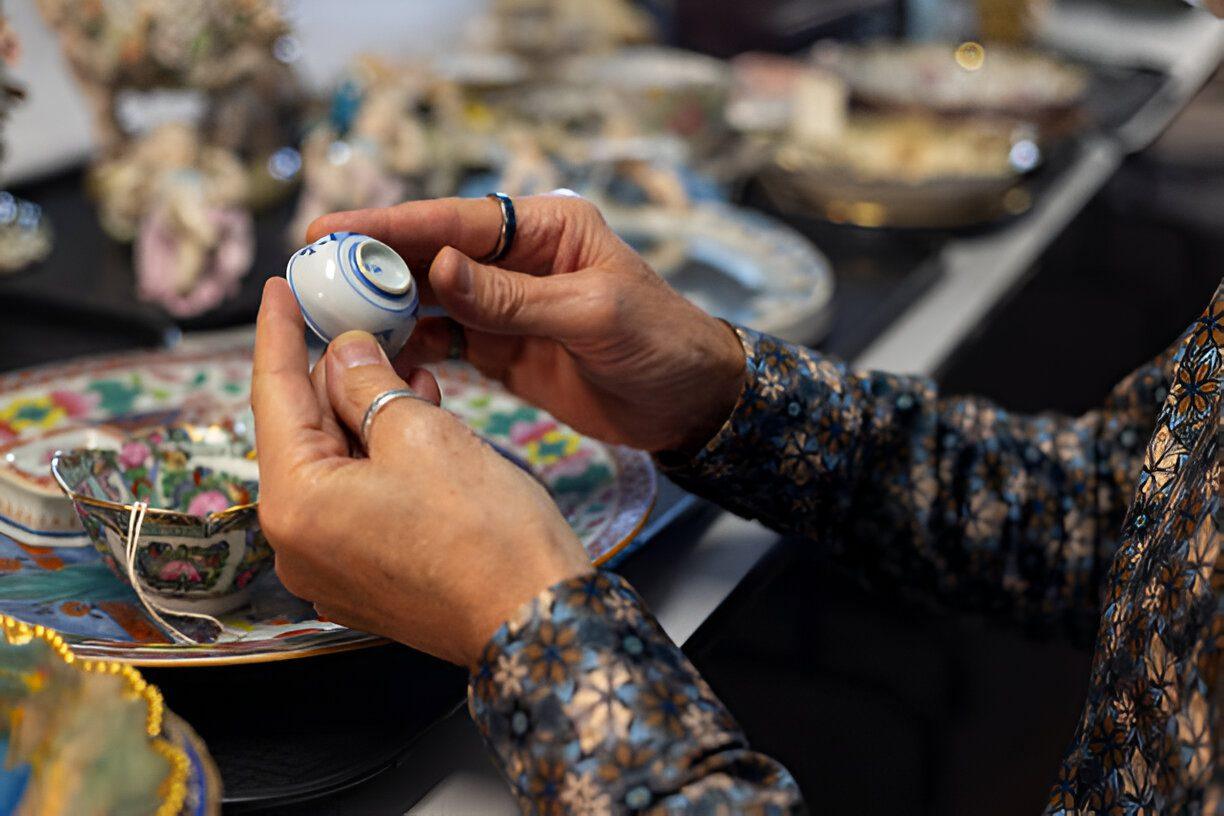When Home Becomes a Memory, Hope Becomes a Guide
Displacement is a profound disruption, uprooting not just the physical foundation of life but also the emotional and psychological aspects tied to home, community, and identity. While the journey back to stability may be daunting, it is also an opportunity to rebuild with resilience, intention, and hope.
“After losing our house, I felt like I’d lost my sense of self. But in time, I realized our roots aren’t in buildings—they’re in who we are and how we choose to rise again.”
When Walls Fall, Strength Emerges

More Than Walls—Reclaiming Life After Displacement
Displacement is a profound disruption, uprooting not just the physical foundation of life but also the emotional and psychological aspects tied to home, community, and identity. While the journey back to stability may be daunting, it is also an opportunity to rebuild with resilience, intention, and hope. Here’s an expanded, heartfelt guide to healing after displacement
Recognizing the Impact
Emotional Loss
Displacement is more than losing a place; it’s the absence of routine, safety, and the connections that defined your daily life. Recognize that your grief might extend beyond the physical loss, encompassing your sense of self, your community, and your history.
Trauma Awareness
Acknowledge that displacement often comes with trauma—whether from conflict, natural disaster, or personal circumstances. Feeling disoriented, fearful, or grieving is not just natural but expected.
Establishing Immediate Stability
Find Shelter and Security
The first priority is securing safe, stable housing. This could range from emergency shelters to temporary accommodations with loved ones or aid organizations. Feeling physically safe is the foundation for emotional recovery.
Basic Needs First
Ensure access to food, water, healthcare, and rest. Meeting these needs allows you to shift focus to the emotional and mental aspects of healing.
Rebuilding Identity
Honor Your Past
Stay connected to your roots by preserving traditions, foods, language, or cultural practices. These rituals help anchor your identity amidst uncertainty.
Embrace New Beginnings
Displacement often necessitates adaptation. Finding ways to integrate elements of your new surroundings into your identity can foster a sense of growth and renewal.
Re-establishing Routine
Daily Structure
Create a routine, even if it’s as simple as morning walks, mealtime rituals, or regular journaling. Structure provides stability and helps you reclaim control over your days.
Anchor Activities
Engage in familiar hobbies or interests. If you loved gardening, find a community garden; if music was your solace, explore local classes or groups. These touchstones offer comfort and continuity.
Exploring Growth Opportunities
Education and Skills
Invest in education or skill development that aligns with your interests or career aspirations. This can open doors to stability and purpose.
New Directions
Displacement might create opportunities to explore passions or pursuits you previously overlooked. Embrace these as a silver lining in a challenging situation.
“Displacement doesn’t erase your story—it writes a new chapter of resilience and renewed faith in the human spirit.” — Nadia L.
Processing Emotions and Grief
Embrace Grief
Grieving is an essential part of healing. Allow yourself to feel sadness, anger, nostalgia, or even guilt without judgment. Journaling or talking about your experience can be powerful outlets.
Therapeutic Support
If available, seek professional counseling or therapy, particularly from practitioners familiar with trauma or displacement. Group therapy or online support groups can also provide understanding and solidarity.
Building a Sense of Community
Engage Locally
Attend community events, volunteer, or join clubs. Shared activities can ease feelings of isolation and help you build meaningful relationships in your new environment.
Cultural Exchange
Share your story, traditions, and experiences while learning about your new community. This exchange can bridge cultural gaps and create mutual understanding.
Addressing Practicalities
Legal and Documentation Support
Replace critical documents like identification, employment records, or academic credentials. Many non-profits or government agencies can assist in this process.
Financial Planning
If financial stability was impacted, create a budget or work with a financial advisor to manage debt, rebuild savings, or explore new income avenues.
Emotional and Mental Wellness
Mindfulness Practices
Activities like meditation, yoga, or deep breathing exercises can help reduce anxiety and ground you in the present.
Celebrate Small Wins
Acknowledge each milestone, no matter how small—whether it’s securing a stable place to stay, forming a new friendship, or finding a sense of calm for a single afternoon.
Nature as a Healer
Reconnect with Nature
Spending time in parks, gardens, or other natural spaces can provide a sense of peace and restoration. Nature has an innate ability to calm and center the mind.
Create a Sanctuary
If possible, incorporate greenery into your space—a plant, a small garden, or even photos of natural landscapes can evoke a sense of life and continuity.
Insights and Statistics
Displacement in Numbers
Globally, tens of millions of people face displacement annually. While each story is unique, knowing you are not alone in this experience can offer some comfort.
Resilience Patterns
Research highlights that individuals who find community, preserve their cultural identity, and focus on long-term goals often experience better emotional and psychological outcomes post-displacement.
Moving Forward
Forgive and Release
Healing often involves forgiving circumstances, others, or even yourself for what was lost. Letting go doesn’t mean forgetting; it means freeing yourself from resentment.
Vision for the Future
Begin to dream again. What does your ideal life look like now? Start setting achievable goals that align with your values and aspirations.
Things To Try This Week!
- Routine Reset: Incorporate one comforting ritual from your past—like a favorite meal or evening relaxation routine—into your new environment. Familiar habits foster stability.
- Nature Connection: Spend 15 minutes each day outdoors, simply breathing or observing. Use nature’s calm to anchor yourself and reduce stress.
- Community Reach-Out: Join an online or local group dedicated to those experiencing displacement or transitions. Share your story, learn from others, and open doors to new support networks.
Conclusion
Healing after displacement is a journey, one that requires patience, compassion for yourself, and the courage to rebuild. While you may have lost a physical home or familiar way of life, your resilience, memories, and the essence of who you are remain intact. Through each step—whether finding shelter, processing grief, or building new connections—you are not just recovering but transforming, proving that even in the face of upheaval, hope and strength can prevail.
Displacement may have taken your physical footing, but it doesn’t diminish the strength of your spirit or the memories that shaped you.
In this journey of rebuilding, let each intentional step—each connection you forge, ritual you create, and dream you dare to hold—serve as a testament to your resilience. For supportive reflections, creative resources, and comforting ideas to guide your path, explore our cherish collections below.
From Loss to Renewal: Embracing Your Inner Strength Amid Displacement
Though your physical foundation may have shifted, the heart of what makes a place ‘home’ endures in your spirit. The All Things Cherish collection offers thoughtful resources, uplifting communities, and gentle keepsakes to help you reclaim comfort, grounding, and the hopeful spark that flourishes in the midst of change.
More Reflections, More Growth
Loss is complex, and the road to healing is different for everyone. These reflections offer insight, support, and guidance as you navigate this journey.
Grieving the Loss of a Familiar Home: Finding Hope and New Roots
A home is more than a place; it’s a collection of memories and milestones. Grieving the loss of a familiar home is valid and personal. Discover how to process the grief, honor its memory, and adapt to new surroundings in meaningful ways.
Building Connections After Relocation: Turning New Places into True Homes
Relocating to a new place offers the chance for a fresh start, but building connections can be challenging. From exploring neighborhoods to tapping into professional networks, this guide offers heartwarming and actionable steps to help you build lasting relationships and create a new sense of belonging.
Building Connections After Relocation: Turning Strangers into Neighbors
Relocating to a new city or country can be daunting, but building meaningful connections can make the transition smoother. From joining clubs to reaching out to professional networks, this guide provides practical steps to help you feel at home in your new community.
When a House Is More Than a Home: Grieving Its Loss and Finding Hope
A house is not just a place—it’s a reflection of identity, a vessel for memories, and a source of stability. Losing it can stir profound grief. This guide explores how to process that grief, honor the home’s role in your life, and find ways to rebuild and create new roots.
The Emotional Toll of Separation
Separation is more than a life change—it’s an emotional journey filled with grief, self-discovery, and transformation. Learn strategies to navigate this difficult transition and build a hopeful new chapter.
When Ambition Meets Grief: Navigating the Loss of a Business You Built
Closing the business you’ve poured heart and soul into isn’t just a financial setback—it’s a deeply personal loss. In many ways, it mirrors the stages of grief, from denial to acceptance. This guide addresses the emotional, practical, and...
A New Chapter Unfolds: Coping with Job Loss and Finding Hope
Job loss can feel like a profound setback, impacting your identity and security. Discover practical steps, emotional recovery strategies, and ways to rebuild your life with purpose and resilience.
Finding Your Next Chapter: Rediscovering Yourself After a Life Change
Life changes can redefine who you are, challenging your sense of identity and direction. Discover how to navigate transitions, embrace growth, and rediscover your true self with intention and resilience.
Finding Hope After Losing a Child
Finding hope after the loss of a child is a delicate journey. This guide offers compassionate steps to honor their memory and navigate grief toward moments of light.
Explore Journeys of Healing and Solace:
Discover dedicated spaces that offer understanding, guidance, and connection through grief. From the loss of loved ones to life’s challenging transitions, each category provides a pathway to reflect, connect, and find peace in shared experiences.


























